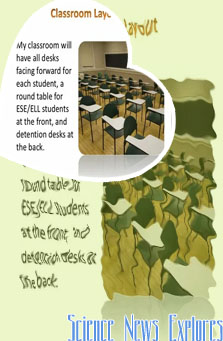Science project for class 4
Teach Junkie
Look Mom, No Dirt! is a science project that teaches kids to grow plants without soil. Find out how to learn about plant growth on the next page of science projects for kids: soil experiments. Science projects for class 4 working model Some of the specific goals to reach for in fourth grade science include:
Science fair project ideas for fourth graders
Are you looking for the greatest bacteria science fair projects that will truly impress your friends and family? Steve Spangler Science has a fantastic collection of bacteria culture ideas, hands-on experiments, and science fair projects for children! Our super-fun projects and bacteria culture experiments will allow your young scientists to witness incredible and memorable bacteria growth in front of their eyes — in a petri dish in their home or classroom! #4: Floating Eggs Science fair projects are a fun and unique way to discover science by asking a question and doing a science project. We'll help you find a science fair project idea and guide you through the process of doing and presenting your science fair project with Science Fair Coach's Science Fair Project Guide. 
How To Make A Compass For Kids
Whether your child has never participated in the science fair or is an old pro, I hope the science fair projects here will inspire them to have fun, explore science, and get creative the same time. Earth Science Science Fair Ideas for High School Students STEP, A twelve-week internship focused on providing development opportunities to first and second year undergraduate students with a passion for computer science.
Science project for class 4 student
Lay the foundation for sketching by explicitly teaching the following techniques. Relevant Blog Posts: One good topic to dive into and a popular one among students are magnets. A simple one would be “How to make an Electromagnet”. The cool thing about this type of fourth grade science experiment is that this can be done using everyday items such as wires, battery, rubber bands, paperclips and others, which could help encourage audiences do the experiment themselves due to the availability of the materials.
|

